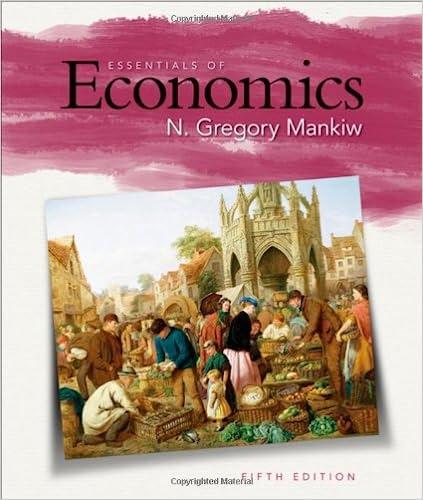Question
People often remark that eating healthy is expensive.Do you think the high cost of fresh fruits and vegetables prompts people to purchase more or less
- People often remark that eating healthy is expensive.Do you think the high cost of fresh fruits and vegetables prompts people to purchase more or less junk food?
- If the price of healthy foods such as fruits and vegetables decreases, do you think consumers will buy more fruits and vegetables?
Now read the following article and answer the questions below.
*****************************************************************************
FRUIT & VEGGIES "TOO EXPENSIVE"?
According to conventional wisdom, pricey produce condemns low income populations to obesity and its related ailments. The reasoning goes: people would buy more fruit and vegetables -- and less unhealthy junk food -- if only produce was more affordable. But in an experimental simulation of grocery shopping, lowering produce prices prompted shoppers to buy more junk food!
Behavioral scientists at the University of Buffalo re-created the grocery shopping experience by stocking a simulated store with everything from bananas, broccoli and tomatoes to soda, candy bars and potato chips. They gave 42 mothers of various income levels a lump sum to buy a week's worth of groceries for their families. After the first shopping trip (in which prices reflected those found in the real world), researchers began tinkering with the price tags -- raising the cost of unhealthy foods and lowering the cost of healthy items on different occasions. The result? Moms took the money they saved on cheaper fruit and veggies and splurged on junk food. The overall calorie count of purchases wentup-- not down -- when produce prices fell. By contrast, higher prices on unhealthy foods shifted spending to fruit and vegetables.
The findings offer some interesting insights at a time when public policy experts are debating whether to impose "sin taxes" on unhealthy food and beverage choices. Specifically, the study suggests the purchasing decisions that are contributing to obesity are less driven by produce prices than by cheap junk food prices and other factors, such as a taste preference for sweet, salty and fatty foods. In fact, when you compare price tags on healthy and unhealthy choices, the latter is often far more expensive.Compare the cost, for example of a banana (roughly 25 cents) to a 90-cent candy bar or a $1.30 side of fries.Clearly the banana is a better bargain -- easier on the pocketbook and far better for your health.
*****************************************************************************
- In what ways do the findings of this study challenge your assumptions about the relationship between cost and consumption of fruits and vegetables? Explain.
- If you were trying to get Americans to consume more fruits and vegetables, how would you set prices?Describe your pricing strategy and logic.
Step by Step Solution
There are 3 Steps involved in it
Step: 1

Get Instant Access to Expert-Tailored Solutions
See step-by-step solutions with expert insights and AI powered tools for academic success
Step: 2

Step: 3

Ace Your Homework with AI
Get the answers you need in no time with our AI-driven, step-by-step assistance
Get Started


